By Ed Chatterton
A zoo is celebrating after helping to hatch three of the world's rarest birds - in what could be a “breakthrough" moment in saving the critically endangered species from extinction.
The trio of blue-eyed ground dove chicks were successfully hand-reared in Brazil, boosting the survival odds of one of the most endangered birds on the planet, conservationists say.
The adorable new hatchlings are said to give new hope to the threatened species, which faces being wiped out as just 11 of the birds are thought to remain in the wild.
An international team, including British experts from Chester Zoo, managed to rear the birds in the Brazilian state of Minas Gerais, the only place they are found.

Blue-eyed ground dove chicks at 20 days old, picture taken Spring 2025 in Parque das Aves, Brazil. (Chester Zoo via SWNS)
Fascinating footage shows how they carefully incubated eggs taken from the wild before painstakingly feeding all three chicks by hand once they hatched.
The team, also featuring Brazilian and American conservationists, says their arrival could provide a vital lifeline for the ultra-rare species by boosting their 'insurance population'.
The blue-eyed ground dove was a species shrouded in mystery, with no confirmed records for more than 70 years, until its rediscovery in 2015.
Andrew Owen, Chester Zoo’s head of birds, said: “It’s a real privilege for Chester Zoo to be involved in the work to help conserve the blue-eyed ground dove.
"This unique species is on the brink of extinction, and without the dedication and passion of all the conservationists involved, including Chester Zoo’s bird staff, this bird may be lost forever.
"This year saw the successful hand-rearing of three blue-eyed ground doves - building on the successes of 2023 and 2024 and doubling the conservation-breeding insurance population.

A blue-eyed ground dove egg being candled to show embryo, picture taken in Spring 2025 in Parque das Aves, Brazil. (Chester Zoo via SWNS)
"Around-the-clock care and attention are needed to rear these tiny and delicate birds.
"It is hoped that the doves, once mature, will start to breed in their purpose-built aviaries at Parque das Aves, and the insurance population can grow.
"The long-term aim is to have a viable insurance population that can help reinforce the blue-eyed ground dove in the wild.”
Conservationists said the birds face many threats in the wild, including human-caused fires and climate change.

Victoria Kaldis feeding a blue-eyed ground dove chick, picture taken in Spring 2025 in Parque das Aves, Brazil. (Chester Zoo via SWNS)
So, earlier this year, a team of Brazilian and international bird conservationists were tasked with selecting and incubating a small number of wild-laid eggs, with the resulting hatchlings helping to create an insurance population in human care.
Andrew travelled to Brazil to provide technical support while Victoria Kaldis, lead keeper for birds at Chester Zoo, also flew over to assist with the hand-rearing of the chicks.
The chicks were hatched after being incubated as part of a joint effort between Chester, Parque das Aves and SAVE Brasil, with support from Toledo Zoo and Bronx Zoo in the United States.

A newly hatched blue-eyed ground dove chick. (Chester Zoo via SWNS)
Paloma Bosso, technical director of Parque das Aves, said: “Seeing these chicks is exciting. Each hatching represents a real chance to reverse the fate of this species.
"It is a joy and also a great responsibility.
“With the arrival of these three new individuals, Parque das Aves is now home to six blue-eyed ground doves.
"All are being carefully monitored and are part of a coordinated reproductive management plan.
"The integration of the new chicks with the others will be gradual and strategic, with a focus on forming breeding pairs, aiming for a stable and genetically viable population.”

A trio of blue-eyed ground dove chicks. (Chester Zoo via SWNS)
The blue-eyed ground dove is critically endangered according to the International Union for Conservation of Nature's Red List.
It once had a wide distribution in the Cerrado biome (the Brazilian savanna), but due to habitat loss driven by farming and timber plantations, it has radically declined.
Currently, the only known population is found in Botumirim in the state of Minas Gerais and a 2025 census confirmed the species remains exceedingly rare.
Ben Phalan, head of conservation at Parque das Aves, said: “The blue-eyed ground dove depends on the efforts of many people and institutions, so that its song can be heard in the Cerrado for many years to come."
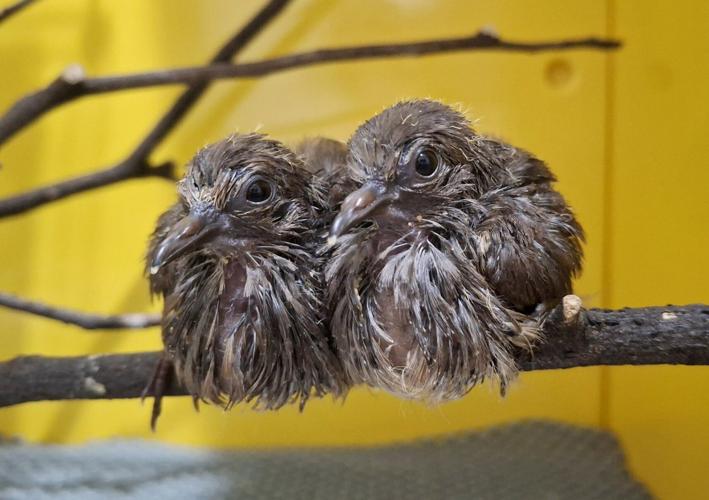
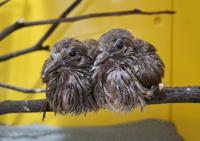
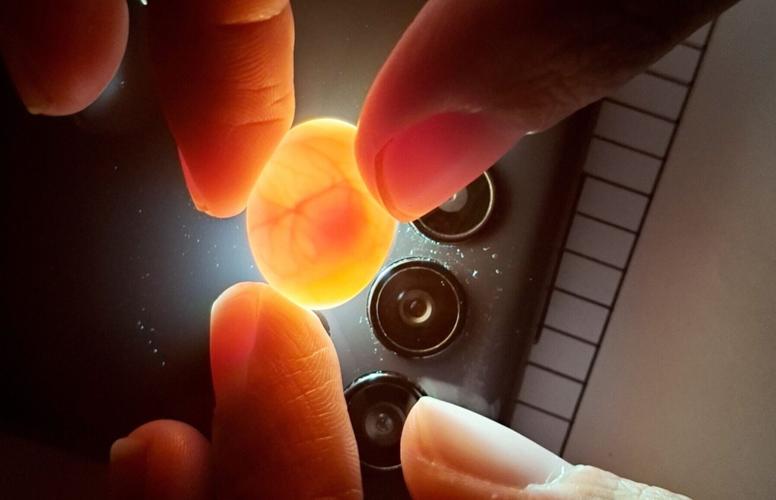

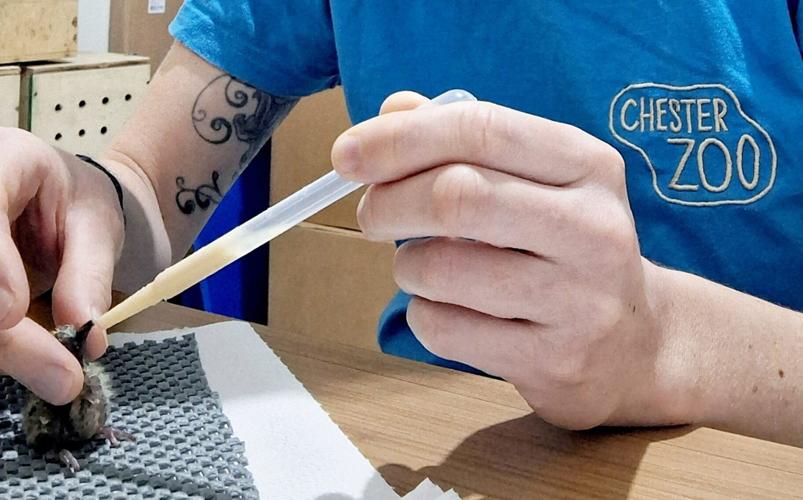

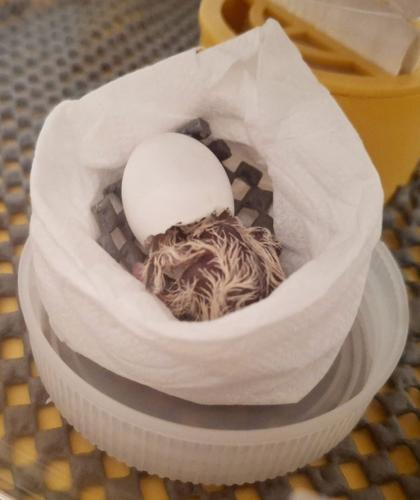
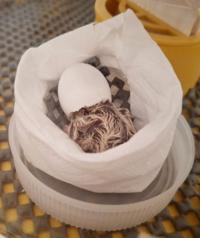
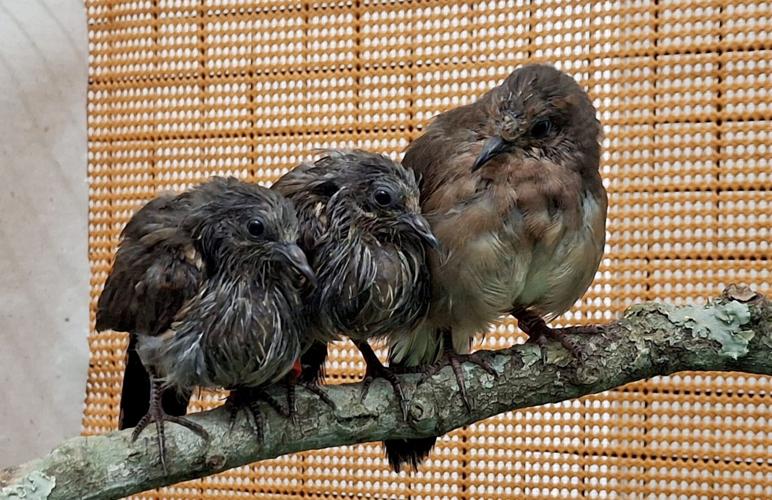
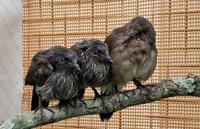
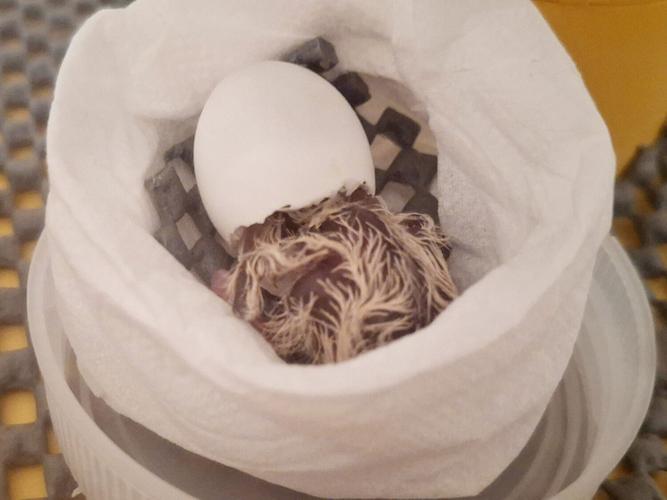
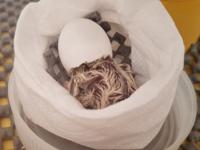
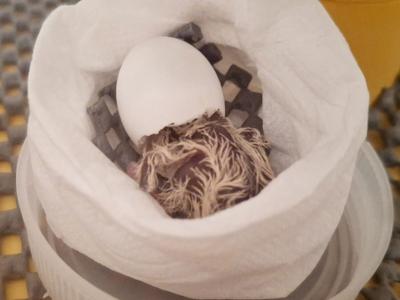













(0) comments
Welcome to the discussion.
Log In
Keep it Clean. Please avoid obscene, vulgar, lewd, racist or sexually-oriented language.
PLEASE TURN OFF YOUR CAPS LOCK.
Don't Threaten. Threats of harming another person will not be tolerated.
Be Truthful. Don't knowingly lie about anyone or anything.
Be Nice. No racism, sexism or any sort of -ism that is degrading to another person.
Be Proactive. Use the 'Report' link on each comment to let us know of abusive posts.
Share with Us. We'd love to hear eyewitness accounts, the history behind an article.